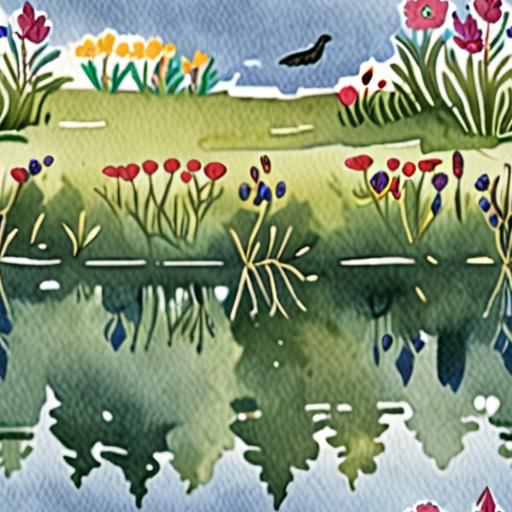Effective self-reflection practices are essential for personal growth, professional development, and overall well-being. By cultivating self-awareness through introspection, individuals can gain valuable insights into their thoughts, emotions, and behaviors, ultimately leading to improved decision-making, increased productivity, and enhanced relationships. In today’s fast-paced world, where stress and anxiety often take center stage, it’s more crucial than ever to develop effective self-reflection habits that promote emotional intelligence, resilience, and mental clarity.
5 Steps for Self-Reflection
As someone who values personal growth and self-awareness, I’ve found that regular self-reflection is essential for making progress towards my goals.
- Step 1: Identify Your Intentions
- Step 2: Practice Mindfulness
- Step 3: Reflect on Your Experiences
- Step 4: Challenge Your Assumptions
- Step 5: Integrate Your Insights
Before starting your self-reflection journey, take some time to clarify what you hope to achieve through this process. What are your goals, and what areas of your life do you want to focus on? Write down your intentions and keep them somewhere visible to remind yourself of what you’re working towards.
Mindfulness is the practice of being present in the moment, without judgment. Take a few minutes each day to sit quietly, focus on your breath, and observe your thoughts and emotions without getting caught up in them. This will help you develop greater awareness of your mental state and become more attuned to your inner world.
Take time to reflect on your experiences, both positive and negative. Ask yourself questions like “What did I learn from this experience?” “How did it make me feel?” and “What would I do differently next time?” This will help you gain valuable insights into your thought patterns, behaviors, and emotional responses.
We often hold onto assumptions and biases that can limit our growth and understanding of ourselves and others. Take time to challenge these assumptions by asking yourself questions like “Is this really true?” “Where did I get this idea?” and “Is there another perspective I haven’t considered?” This will help you develop greater critical thinking skills and become more open-minded.
The final step is to integrate the insights you’ve gained from your self-reflection into your daily life. Ask yourself how you can apply what you’ve learned to make positive changes in your behavior, relationships, and overall well-being. Make a plan for implementing these changes and track your progress over time.
Understanding SelfReflection Practices
I’ve learned that selfreflection is a powerful tool for personal growth and self-awareness.
- It helps me identify my strengths and weaknesses, allowing me to set realistic goals and work towards achieving them.
- Through selfreflection, I’m able to recognize patterns and habits that may be holding me back, giving me the opportunity to make positive changes in my life.
- By regularly practicing selfreflection, I’ve become more empathetic and understanding towards myself and others, fostering stronger relationships and a greater sense of community.
The Benefits of Regular SelfReflection
Regular selfreflection has numerous benefits, including:
- Improved mental health and well-being
- Increased self-awareness and understanding
- Better decision-making and problem-solving skills
- Greater empathy and compassion towards oneself and others
Practicing SelfReflection Effectively
To get the most out of selfreflection, try the following:
- Schedule regular time for selfreflection, whether daily, weekly, or monthly
- Find a quiet and comfortable space to reflect, free from distractions
- Start with open-ended questions, such as “What am I grateful for?” or “What can I improve on?”
- Be honest and kind to yourself, acknowledging both strengths and weaknesses
Resources for Further Learning
If you’re interested in learning more about selfreflection and personal growth, check out the following resources:
- Mindful.org offers a wealth of information on mindfulness and self-reflection
- Psychology Today features articles and blogs on various topics related to mental health and self-awareness
- HuffPost publishes articles and stories on personal growth, self-improvement, and mindfulness
Examples of Reflective Practice
Reflective practice involves thinking critically about your actions, decisions, and experiences to identify areas for improvement.
- An athlete who reflects on their performance after every practice, considering what they did well, what they could improve on, and how they can adjust their strategy for better results.
- A teacher who evaluates their lesson plans, assessing what worked effectively and what didn’t, and makes adjustments accordingly to enhance student learning outcomes.
- A manager who reviews team performance, identifies strengths and weaknesses, and develops strategies to address challenges and capitalize on opportunities.
- A writer who reflects on their writing process, examining what techniques work best for them and how they can apply those skills to future projects.
- A healthcare professional who reflects on patient interactions, identifying areas for improvement in communication, empathy, and care delivery.
These examples illustrate the importance of reflective practice in various fields, from sports and education to management and healthcare.
Benefits of Reflective Practice
Engaging in reflective practice offers numerous benefits, including:
- Improved decision-making through critical analysis and consideration of alternative perspectives.
- Increased self-awareness, enabling individuals to recognize their strengths and weaknesses.
- Enhanced problem-solving skills, allowing individuals to approach challenges with creativity and resourcefulness.
- Better communication and collaboration, as individuals learn to articulate their thoughts and listen actively to others.
- Personal growth and development, as individuals become more aware of their values, goals, and aspirations.
Implementing Reflective Practice in Daily Life
To incorporate reflective practice into daily life, try the following:
- Schedule regular reflection sessions, whether weekly, monthly, or quarterly, to evaluate progress and set new goals.
- Keep a journal or log to record thoughts, feelings, and experiences, providing a valuable resource for reflection.
- Seek feedback from others, whether colleagues, mentors, or friends, to gain new insights and perspectives.
- Practice mindfulness and meditation to cultivate a greater awareness of yourself and your surroundings.
- Engage in activities that promote self-reflection, such as reading, writing, or creative pursuits.
7 Self-Reflection Questions to Help You Move Forward
I’ve found that regularly taking time for self-reflection helps me stay focused and motivated on my goals.
-
1. What Am I Grateful For?
Reflecting on what I’m thankful for helps shift my perspective and appreciate the good things in life.
-
2. What Can I Improve On?
Identifying areas where I need improvement allows me to set realistic goals and work towards becoming a better version of myself.
-
3. What Are My Strengths And Weaknesses?
Understanding my strengths and weaknesses helps me play to my advantages and work on my weaknesses.
-
4. What Are My Goals And Priorities?
Clarifying my goals and priorities ensures I’m focusing on what’s truly important to me.
-
5. How Can I Practice Self-Care?
Making time for self-care helps me recharge and maintain my physical and mental well-being.
-
6. What Can I Learn From My Mistakes?
Reflecting on my mistakes helps me grow and learn from my experiences.
-
7. What Am I Looking Forward To?
Thinking about what I’m looking forward to helps me stay positive and excited about the future.
Types of Reflective Questions
I’ve found that incorporating reflective questioning into my coaching conversations with staff members can be incredibly valuable in encouraging reflection and supporting their growth.
- Awareness questions help individuals become more aware of their thoughts, feelings, and actions, often prompting them to consider new perspectives or insights.
- Analysis questions require individuals to examine and evaluate information, making connections between ideas and developing a deeper understanding of complex issues.
- Alternatives questions challenge individuals to think creatively and explore alternative solutions or approaches, fostering innovation and problem-solving skills.
- Action questions prompt individuals to take concrete steps towards implementing changes or improvements, promoting accountability and progress.
By incorporating these types of reflective questions into our coaching conversations, we can create a safe and supportive environment for staff members to reflect, grow, and develop their skills.
At Chris and One, we’re committed to helping individuals cultivate meaningful personal growth and relationships through our resources and community.
For more information on how to incorporate reflective questioning into your coaching conversations, check out our personal growth resources .
We also recommend exploring the work of other experts in the field, such as MindTools , which offers a wealth of information on reflective questioning and other coaching techniques.
Remember, the key to effective reflective questioning is to create a safe and non-judgmental space for individuals to explore their thoughts and feelings.
By doing so, we can help our staff members develop greater self-awareness, improve their relationships, and achieve their goals.
5 Essential Questions to Ask for Effective Self-Reflection
I’ve found that asking myself these five questions helps me gain valuable insights into my thoughts, feelings, and behaviors.
-
What Am I Grateful For?
Reflecting on what I’m thankful for helps me appreciate the good things in life and shifts my focus away from negativity.
-
What Can I Improve On?
Identifying areas for improvement allows me to set realistic goals and work towards becoming a better version of myself.
-
Am I Living Authentically?
Asking myself if I’m living true to who I am helps me stay connected to my values and passions.
-
How Can I Practice Self-Care?
Considering how I can take care of my physical, emotional, and mental well-being helps me prioritize my health and happiness.
-
What Am I Looking Forward To?
Reflecting on upcoming events or experiences helps me cultivate excitement and anticipation for the future.
By regularly asking myself these questions, I’ve been able to develop greater self-awareness, make positive changes, and live a more fulfilling life.
Conclusion:
Self-reflection is an essential tool for personal growth and development. By incorporating these five questions into your daily routine, you’ll be better equipped to navigate life’s challenges and opportunities with confidence and clarity.





0 Comments